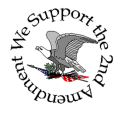My own Personal Morality
Morality: 1. The quality of being in accord with standards of right or good conduct. 2. A system of ideas of right or wrong conduct. 3. Virtuous conduct.
In a previous post, I mentioned the fact that theists and conservatives regard morality as a chiselled-in-stone message handed down by their deity through their priests and their holy writings. No thinking--just hear, read and comply.
On the other hand, secularists and leftists offer that morality comes from oh, "society" or "whatever you feel is right." "If it feels good, do it," was the hippie morality of the Viet Nam War era.
Well, morality isn't chiselled tablets lugged down from a mountaintop, nor can it be made up as one goes along, on the whim of the moment. Morality is an absolute system based on the requirements of man qua man.
Morality is what each individual must discover for himself. The better he becomes at discovering the morality proper to man, the better his life will be.
When I say absolute, though, I don't mean that every choice is one of life or death. It rarely is. We live on a more-or-less benevolent planet. Or, perhaps I should put it this way: we've adapted ourselves to be able to live on planet Earth because we've had to. We've done it well. Decade by decade, we're continually getting better at it (most of us, anyway). We've built "cushions," in an attempt to protect ourselves against many kinds of errors.
The fact remains, in spite of the "cushions," even a small error can, and occasionally does, kill someone. Avoiding errors is good.
Morality, along with a careful understanding of the facts of reality (also absolute) will help him avoid errors. The better one's understanding of the facts of reality and the facts of morality, the better will be his system of "cushions."
Warm regards,
Col. Hogan
Stalag California
Subscribe to:
Post Comments (Atom)






No comments:
Post a Comment